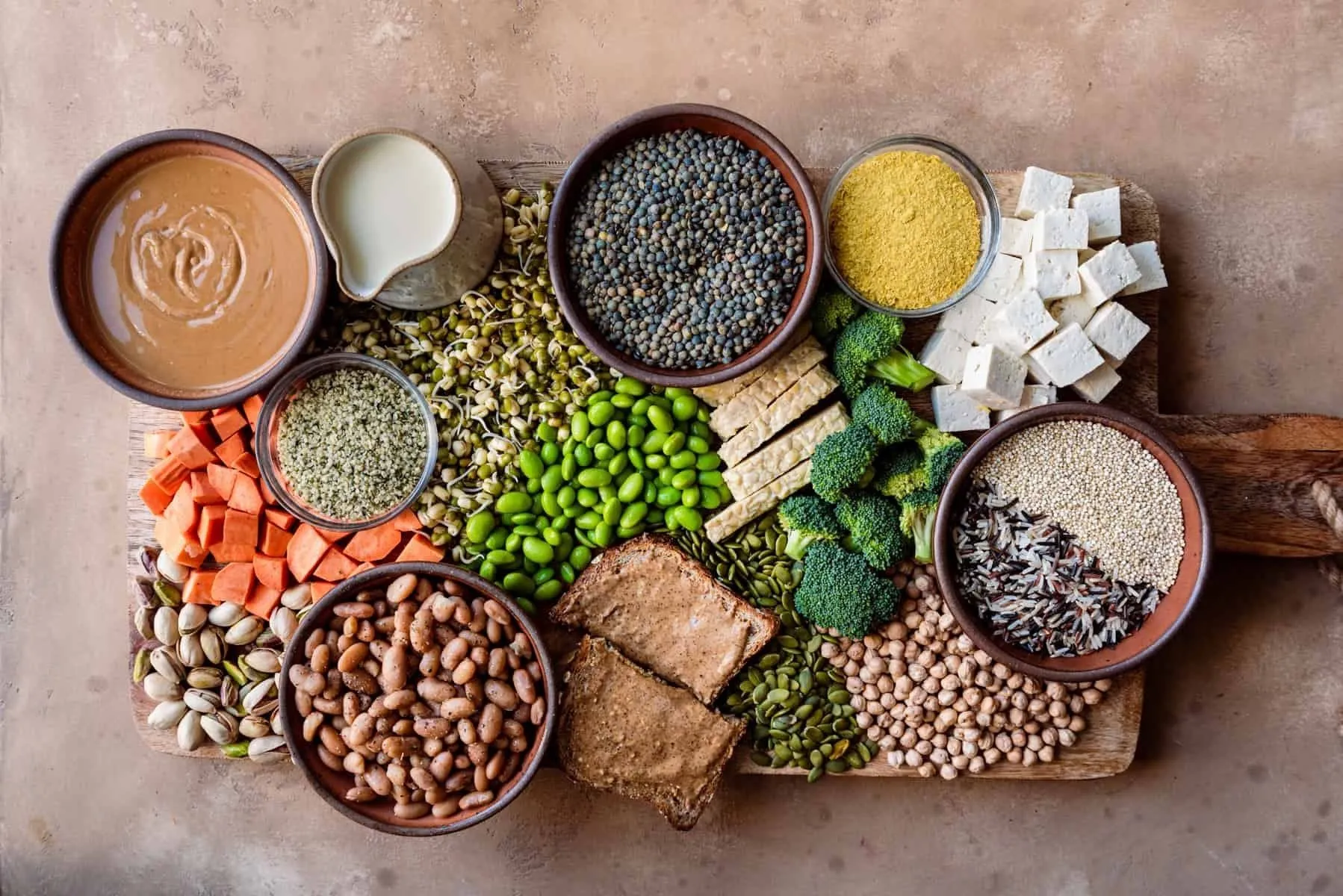
As a nutritionist, I work with many people who decide to adopt a healthier lifestyle and eat properly. However, the word "properly" means different things to different people. For one person, it may mean simply giving up soda, for another — abruptly switching to veganism, while a third may be considering for the first time what they actually eat.
Fasting is not only a religious practice. If we set aside the spiritual aspect, it is essentially a diet in the classical sense of the word. The term "diet" comes from Greek and translates to "way of life." It should be aimed at long-term changes and the development of sustainable eating habits. Therefore, the recommendations for fasting are the same as for any diet: taking into account the principles of food combination, the specifics of modern lifestyles, and maintaining metabolic strength and balance.
Who should not fast? In what cases is it beneficial, and when can it be harmful?
Fasting involves dietary restrictions that can affect physical health in different ways. I recommend that adolescents refrain from fasting, as they require a full range of nutrients, particularly proteins, B vitamins, and iron, which are scarce in a fasting diet.
It is also advisable to avoid fasting for people who have recently experienced stress or are undergoing intense mental or physical exertion. Fasting is not recommended for pregnant and breastfeeding women, the elderly, or those suffering from heart or kidney failure, gallstone disease, ulcers, gastritis, pancreatitis, or cholecystitis.
What should one eat, and in what amounts during fasting? What common dietary mistakes can you highlight?
To ensure the body receives all the necessary vitamins and minerals, nutrition must be diverse. However, medical studies show that the typical "Western" diet is far from varied. Therefore, any restriction, whether a diet or fasting, should be well thought out.
There are scientifically established nutritional norms (which, fortunately, are easy to calculate nowadays) that are necessary for the body's proper functioning. Consume fruits, vegetables, high-quality proteins, and unsaturated fats. Eat regularly and according to your activity level.
Knowing how to choose and combine foods correctly is the foundation of a daily diet, and during fasting, this becomes even more critical.
According to strict fasting rules, one may eat once a day on weekdays and twice a day on weekends. In my opinion, this is one of the biggest challenges. Such an eating rhythm is stressful for the body.
It is better to eat more frequently, but without overeating. Avoid overeating, but ensure your diet remains nutritionally complete.

From my experience, even people who lead a healthy lifestyle and consult me to review their diet still make mistakes.
Among the most common mistakes are:
– Overeating
– Monotonous diet
– Excessive consumption of simple carbohydrates
– Too long or too short breaks between meals
The main mistake during fasting is the improper selection of foods and extreme dietary choices.
"Meat, dairy, and eggs are not allowed — so we will eat only bread, porridge, and water."
I remind you that vegetables and fruits are allowed every day except on fasting days with complete abstinence from food.
Focus on:
✔ Alkaline vegetables (cauliflower, white cabbage, broccoli)
✔ Salads and leafy greens
✔ Nutrient-rich root vegetables (beets, sweet potatoes)
✔ Porridge and grains (buckwheat, quinoa, oats, whole-grain wild rice)
Protein sources:
– Tofu, legumes, seafood
Healthy fats:
– Nuts, avocado, unrefined oils
Healthy snacks:
– Dried fruits (choose those that are not soaked in sugar syrup)
✅ Do not forget to drink water.
In general, variety is the key to healthy eating.
Eat a diverse diet, explore new foods and recipes!
Which vitamin and mineral deficiencies does the body experience during fasting? How can they be identified by symptoms?
This depends on your overall health and immune system condition.
Deficiencies of various nutrients manifest differently:
– Weakness or nausea
– Dull hair
– Dry skin
– Brittle nails
– Pale complexion
– Rapid heartbeat even with minimal physical exertion
To avoid deficiencies, ensure your diet is balanced:
– 20% of foods rich in protein
– 50% vegetables and fruits
– 20% whole grains, other cereals, and/or legumes
– The rest — healthy fats
If you are unsure whether you can plan your diet correctly on your own, it is best to consult a specialist or compensate for potential deficiencies in advance with supplements.
Are there general recommendations for specific dietary needs during different life periods?
Yes. For example:
– Iron supplements are necessary for:
✔ Vegan and vegetarian diets (which are very similar to fasting diets)
✔ Pregnancy preparation
✔ Periods of intense physical activity
✔ Regular blood donation
✔ Unbalanced diets
Vitamin complexes contain only preventive doses, so in specific cases, iron should be taken additionally.

Vegans benefit from taking an iron supplement course once a year or every year and a half, as this micronutrient is extremely difficult to obtain in sufficient amounts from plant-based foods (unless you consume spinach in tens of kilograms).
People with micronutrient deficiencies, the elderly, or those with serious illnesses — particularly those with chewing, swallowing, or malabsorption issues — can all benefit from supplements.
How to Get the Most Benefit from Supplements
✅ Diverse nutrition
✅ Regular physical activity
✅ Clean drinking water throughout the day
✅ Avoiding smoking
💡 Vitamins cannot replace a healthy diet.
Multivitamins cannot compensate for a nutrient-deficient or monotonous diet.
However, they can help solve specific issues if your diet does not provide the necessary nutrients.
📌 For example, during fasting.
Which Supplements Are Recommended?
For Everyone
✔ Vitamin B12
🔹 Supports normal blood formation
🔹 Aids DNA synthesis
🔹 Maintains nervous system health
🔹 Stimulates fat and protein metabolism
📌 Found in:
🟢 Organ meats
🟢 Meat
🟢 Fish
🟢 Eggs
📌 During fasting, it must be taken as a supplement.
For Almost Everyone
✔ Vitamin D
🔹 Influences emotional well-being
🔹 Maintains calcium and phosphorus levels
🔹 Essential for bone and dental health
🔹 Strengthens the immune system
🔹 Supports gut and prostate health
📌 As we age and with reduced sun exposure, the body produces less of it.
✔ Iodine
🔹 Supports thyroid function
🔹 Regulates hormonal processes
📌 If you have had hormone-related issues, taking iodine as a supplement during fasting is advisable.
As Needed
✔ Calcium
📌 During fasting, getting enough calcium from plant-based foods is challenging.
It can be found in:
✔ Leafy greens
✔ Frozen gooseberries
However, consuming enough spinach, for instance, would require excessively large amounts.
🔹 Essential for strong bones and teeth
🔹 Supports gut, heart, and nervous system health
🔹 Plays a role in blood clotting enzymes
📌 When combined with a healthy diet and physical activity, calcium reduces the risk of osteoporosis.
✔ Iron
🔹 A key component of hemoglobin
🔹 Ensures oxygen transport throughout the body
🔹 Affects red blood cell production and energy metabolism
📌 During fasting, monitoring iron levels is crucial, and supplementation should be considered if necessary.

How to Properly Transition Out of Fasting and Maintain Your Well-Being Afterwards
Transitioning to a new diet should be gradual. It is not advisable to impose strict restrictions immediately, just as it is not recommended to indulge in meat on the first day after fasting. Move at a pace that is comfortable for your body.
Drink More Water. Water transports nutrients to cells and removes waste. Even slight dehydration can quickly lead to fatigue and loss of energy. Water helps regulate blood pressure, maintain an optimal electrolyte balance, and support the body's rejuvenation processes. Drinking water is always beneficial, and it is best to make it a habit. Avoid replacing it with tea, coffee, or juices.
Choose Fresh and Seasonal Products. Seasonal products are the most nutritious and also add variety to your diet. While mangoes and oranges are available all year round, gooseberries, ten varieties of ripe tomatoes, or six different types of pumpkins in various colors are only in season for a limited time.
Replace Refined Foods with Whole Foods. Instead of sugar, use honey, unrefined coconut or cane sugar, stevia, maple syrup, or Jerusalem artichoke syrup. Instead of refined white flour, opt for whole grain, whole rye, or buckwheat flour. Instead of white rice, choose red, brown, or wild rice. Avoiding refined foods, even just at home, will significantly improve your diet and overall well-being.
Do You Follow Fasting? Does Your Diet Change with the Arrival of Spring? Any Personal Tips for Maintaining Energy While Transitioning from Winter?
I do not follow fasting. Throughout the year, I consume a large amount of vegetables and fruits, which form the foundation of my diet. I eat high-quality proteins such as beef, poultry, fish, and seafood. I also consume nuts and use only unrefined oils. My refrigerator always contains fruits and berries — at least 3–4 varieties — as well as vegetables, leafy greens, and eggs.
On my kitchen shelves, I always have raw nuts, fresh dates or black raisins, buckwheat, and quinoa — these are the foods I crave more during the colder months. My freezer always holds a stock of fish. Everything else varies: I may have goat cheese, sheep cheese, or tofu. I do eat meat and poultry, though in significantly smaller quantities compared to fruits and vegetables.
There is no magic pill or superfood that can instantly solve all health issues. Our well-being is a complex puzzle made up of many elements: how we treat ourselves and our bodies (including our diet), how we interact with others, what our desires and life goals are, and how we spend our free time.



